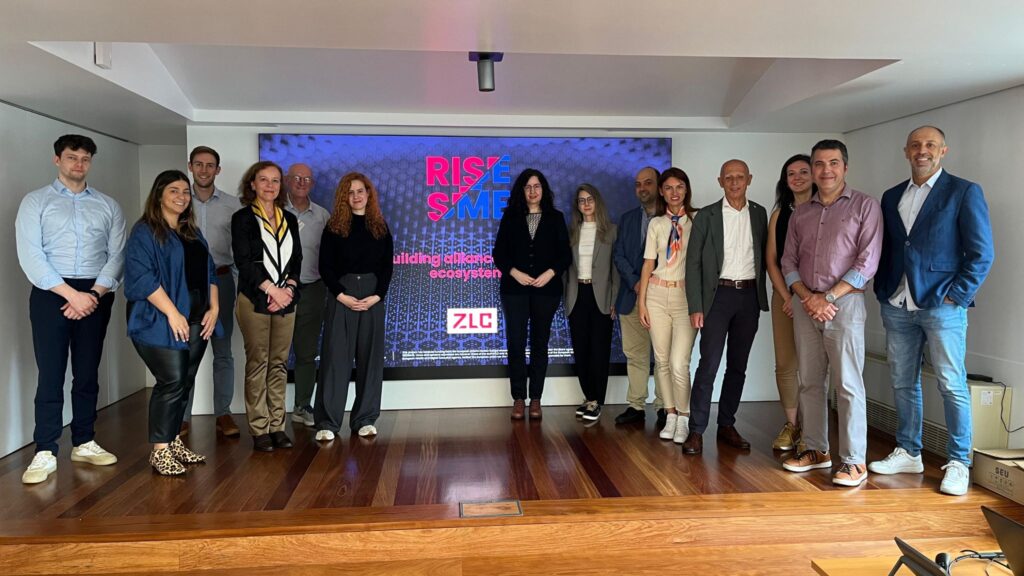The RISE-SME project consortium, funded by the European Union’s Horizon Europe programme, concluded a successful two-day consortium and review meeting at the INESC TEC facilities in Porto. The meeting served as a checkpoint to assess the project’s progress in developing a model to help European SMEs detect and anticipate supply chain disruptions.
The event kicked off on September 9th with a consortium meeting focused on a thorough rehearsal of the review presentations and a detailed look at the project’s work packages. The partners also had the opportunity to visit INESC TEC’s iLab facility, offering a firsthand look at the research and technology that supports the project’s objectives.
On September 10th, the official review meeting was held, where the consortium presented the significant advancements made on the project. The presentations covered key areas, including:
- WP1: Mapping of supply chain models, risks and disruptions into industrial ecosystems, led by INESC TEC, which focuses on identifying critical dependencies and weaknesses.
- WP2: Methodology for disruption impact quantification and technology scouting, led by Fraunhofer, which is developing a method to measure the impact of disruptions and find technological solutions.
- WP3: Building alliances in industrial ecosystems, led by ZLC, which is creating partnerships between traditional and tech-savvy SMEs.
The consortium demonstrated the project’s progress in building a methodology that identifies disruptions and technological opportunities, enabling SMEs to build more flexible, agile, and resilient supply chains. Susana Xará – the Project Adviser – praised the consortium’s progress and the collaborative effort demonstrated throughout the meeting.
The positive feedback and fruitful discussions confirm the project’s trajectory toward its goal of helping SMEs navigate a complex global landscape. The consortium will now focus on the next steps.
About RISE-SME
The Resilient Industry Supply Chain Enhancement for SMEs (RISE-SME) project is a three-year initiative funded by the European Union’s Horizon Europe Research and Innovation programme under Grant Agreement No 101138645. The project aims to develop a model that can assist companies in detecting and anticipating disruptions in their supply chains, helping to reduce strategic dependencies on critical products and technologies.
